What to know
- Small mammals include animals like rats, hamsters, hedgehogs, rabbits, and guinea pigs.
- These animals can sometimes carry germs that can make people sick.
- Children under 5, adults 65 and older, and people with weakened immune systems are more likely to get sick from these germs.
- Wash your hands after handling small mammals, their food, or their supplies.
- Provide your pet with routine veterinary care to keep it healthy and prevent the spread of disease.
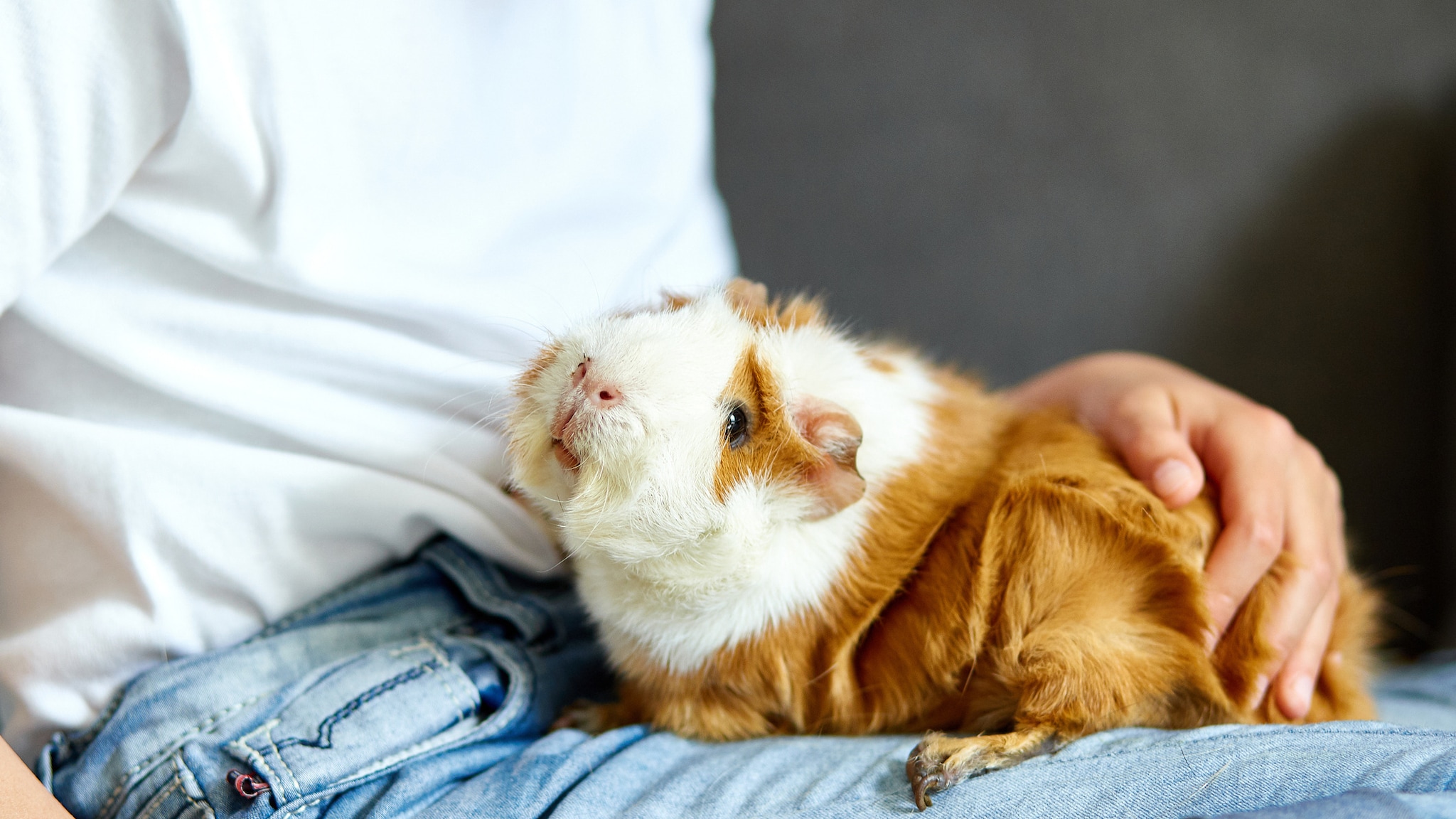
Overview
Small mammals commonly kept as pets can include:
- Rodents like rats, mice, hamsters, gerbils, and guinea pigs
- Hedgehogs
- Sugar gliders
- Rabbits
Owning a small mammal is a big responsibility, even though the animal itself might be tiny. If you decide that a small mammal is the right pet for you, it’s important to learn how to properly care for your pet.
How to stay healthy around small mammals
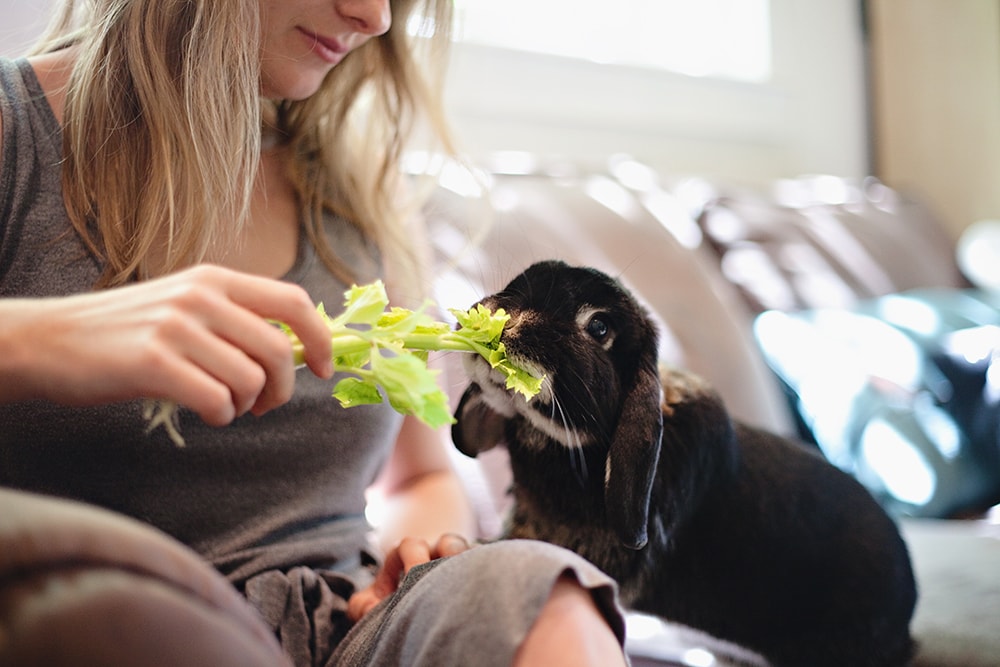
Know the risks
Small mammals can sometimes carry germs that can make people sick even when they look clean and healthy. Some people are more likely to get a severe illness, including:
- Children younger than 5 years old
- Adults 65 and older
- People with weakened immune systems
Wash your hands
You don't have to touch a small mammal to get sick. Pet food, equipment, and habitats can be contaminated with Salmonella and other germs.
Wash your hands with soap and running water after:
- Handling small mammals or other body fluids
- Touching or cleaning your pet's equipment (like cages, play areas, bedding, water, and food)
Animal's bodily fluids, like urine, poop, and saliva, can carry germs that spread diseases.
Supervise handwashing for children. Use hand sanitizer if soap and water are not readily available.
Safely care for your pet
Don't cross-contaminate
Keep small mammals and their equipment out of the kitchen or anywhere that food is prepared, stored, served, or eaten.
Don't allow pet small mammals to roam freely throughout a home or living area. Supervise your pet when it is outside of its habitat to prevent accidents and contamination.
Keeps pets away from your face
Don't kiss, snuggle, or hold small pets close to your face. Avoid touching your mouth after handling small mammals.
Safely clean your pet's habitat
Cleaning pet supplies outside
Clean pet supplies outside of your home, if possible. Clean supplies away from gardens or other sources of food or drinking water.
Cleaning pet supplies inside
If cleaning outside the home isn't possible, clean supplies in a laundry sink or bathtub and clean and disinfect after. If you clean supplies in the bathtub, thoroughly clean and disinfect the area before use by others.
Never use food preparation areas to clean small mammal habitats or equipment.
Prevent bites and scratches
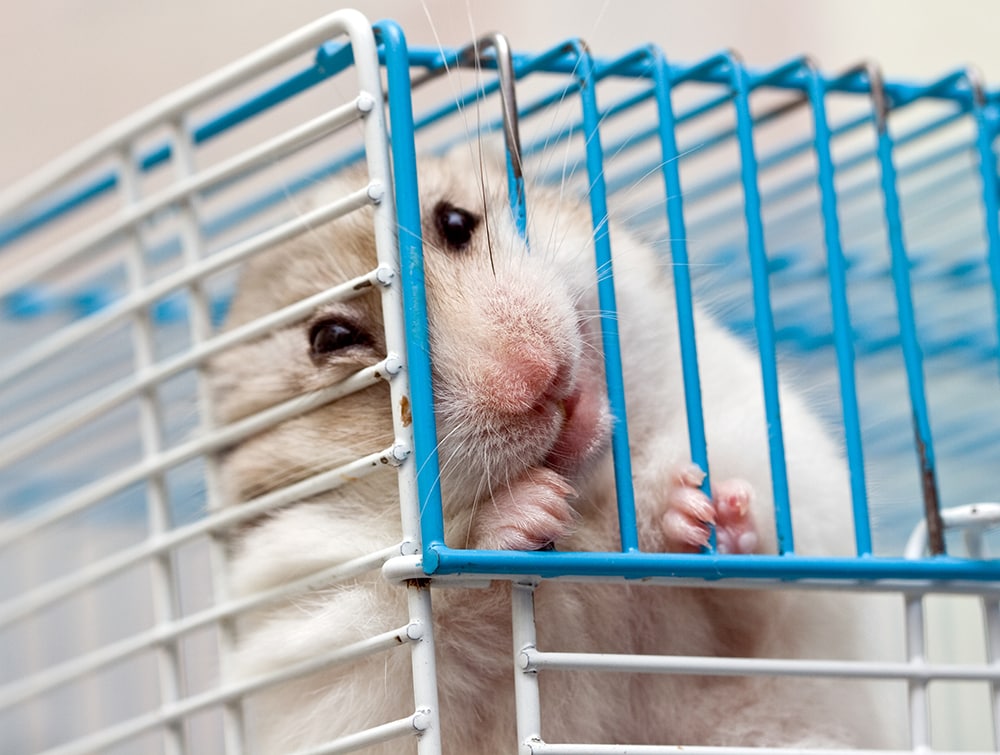
Bites from small mammals can be dangerous and spread germs. Bites and scratches can be serious injuries and sometimes can become infected.
How to prevent bites and scratches
Don't kiss or hold small mammals close to your face. This might frighten them and increase your chances of being bitten.
Make sure the animal sees you before you pick it up. If an animal is surprised, it might bite out of fear.
Be cautious with unfamiliar animals, even if they seem friendly.
What to do if you are bitten or scratched by a small mammal
Pet bites and scratches can spread germs, even if the wound does not seem deep or serious.
Wash the wound with warm soapy water immediately if a bite from a small mammal breaks the skin. Even healthy pets can carry germs.
Seek medical attention, especially if:
- Your pet looks sick or is acting unusual.
- The wound is serious.
- The wound or site of injury becomes infected.
- It has been more than 5 years since your last tetanus shot.
- Your pet is housed outdoors.
- Your pet has been in contact with wildlife.
Serious wounds
Serious wounds are characterized by bleeding that doesn't stop, being unable to move, and extreme pain. Exposed muscle or bone or the bite being over a joint can also make a wound serious.
Infected wounds
If the wound becomes red, painful, warm, or swollen, it may be infected. Some people may be at risk for serious complications from infected wounds. This includes those who are younger than 5 years old, 65 or older, pregnant women, or those with a weakened immune system.
Rabies risk
Small mammals kept outside may be at risk for rabies.
If the animal becomes sick or dies after biting a person, call a veterinarian.
Healthy small animals
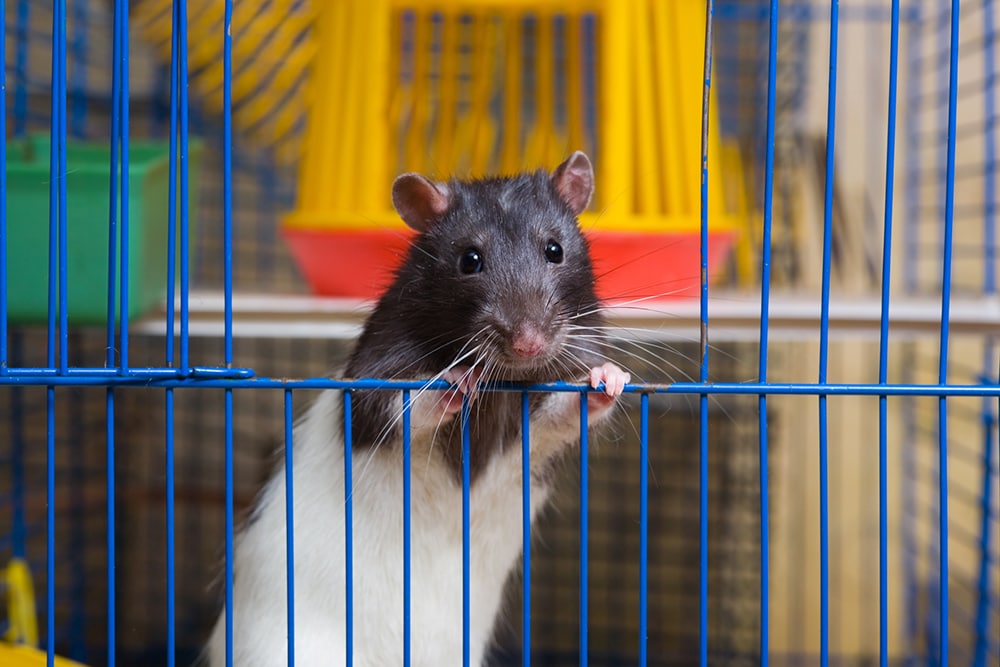
Before choosing a small mammal
Consider the people in your household before choosing a pet since small mammals can spread germs. Research and learn how to properly care for small mammals before buying or adopting.
Find an exotic veterinarian
Find an exotic veterinarian in your area. Small mammals often require specialized care that all veterinarians may not provide.
Ask your veterinarian about the proper needs of the specific pet you are interested in choosing. This includes the proper food, care, and environment for your pet.
Check local laws
Check your state, local, and property laws before choosing a small mammal. Some small mammals might not be allowed in apartments or rental homes, and some are not legal in certain states.
How to choose a small mammal

Choose a pet whose attitude, size, and activity level matches the needs of your family. Consider your home environment and time available to spend with your pet. If you want a pet that can be frequently handled and petted, do not choose a shy or aggressive pet.
Choose a healthy pet
Pick a pet that is bright, alert, and active. Small mammal pets should have shiny, clean fur.
Do not choose a pet from a cage where any other animals look sick. Signs of illness in a small mammal include appearing sluggish or depressed, diarrhea, abnormal breathing, and runny nose or eyes.
Within a week after getting your pet, take it to the veterinarian for a check-up.
If your pet becomes sick or dies
If your pet becomes sick or dies soon after purchase or adoption, take it to the veterinarian. Inform the pet store, breeder, or rescue organization about the pet's illness or death.
Consider waiting before purchasing or adopting another pet. Do not use the pet's habitat until it has been properly cleaned and disinfected. These practices will help prevent the spread of disease.
How to house your small mammal pet
- Keep your pet in a habitat that can be securely closed and locked.
- Make sure your pet has fresh food and water every day.
- Secure enclosures to prevent wildlife and other animals from entering.
- Provide appropriate items for enrichment.
Ask your veterinarian about which equipment is right for your pet.
Monitor your pet's health
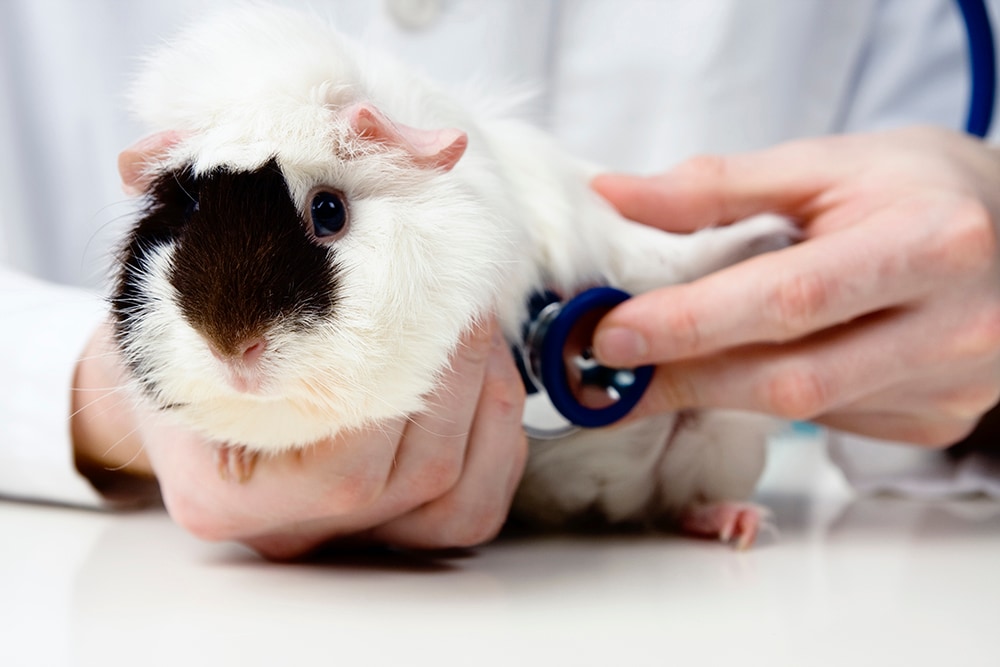
Examine your small mammal daily, looking for any changes in activity level, appetite, or overall health. Specifically, look for:
- Sluggish or depressed behavior
- Dull fur or hair
- Loose poop
- Runny eyes or nose
- Abnormal breathing
These signs could mean your pet is sick. If your pet seems sick or shows any of these signs, contact your veterinarian immediately.
To keep your pet as healthy as possible, visit a veterinarian for regular checkups.
If you no longer want your pet
You should find out how to appropriately relinquish a small mammal if you no longer want or cannot care for a pet. Check with local or regional animal rescues, local animal control, veterinarians, pet shops, or state wildlife agencies for more information.
Resources
Selecting and caring for a small mammal pet
- Selecting a Pet Rabbit (American Veterinary Medical Association)
- Selecting a Pet Rodent (American Veterinary Medical Association)
Importing a small mammal
Animal and Animal Product Import Information (US Department of Agriculture)
Educational materials
- Stay Healthy Around Animals! (Coloring Book)
- Wash Your Paws! 8.5×11 poster
- Wash Your Paws! 11×17 poster
